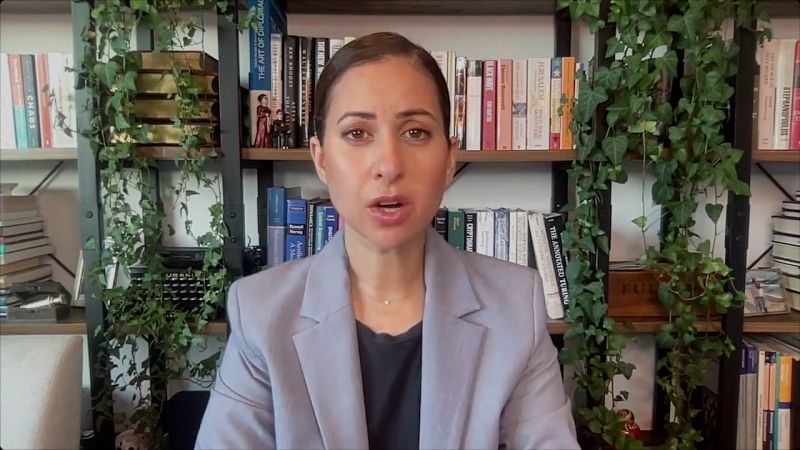[The Complexities of a Potential Ceasefire Between Israel and Hezbollah
Middle East analyst and former Pentagon adviser Jasmine El-Gamal delves into the intricacies of a potential ceasefire between Israel and Hezbollah, highlighting the diplomatic details and unresolved issues that could impact the region’s future stability.
The current standoff between Israel and Hezbollah has been ongoing for decades, with both sides engaged in a cycle of violence and retaliation. A ceasefire would require a significant shift in the dynamics of the conflict, necessitating a deep understanding of the parties involved and their motivations.
El-Gamal begins by examining the historical context of the conflict, tracing the roots of the rivalry between Israel and Hezbollah back to the 1980s. She notes that Hezbollah’s emergence as a significant military force in the 1990s was driven by its opposition to Israeli occupation in southern Lebanon and its desire to protect Lebanese territory.
The analyst also explores the role of regional powers in the conflict, highlighting the complex relationships between Israel, Hezbollah, Iran, and Syria. El-Gamal argues that these powers have all contributed to the escalation of violence in the region, often using proxy forces to advance their own interests.
One of the key challenges in achieving a ceasefire is the issue of Hezbollah’s weapons arsenal. The group’s possession of advanced rockets and missiles has been a major source of tension with Israel, which has launched numerous military campaigns aimed at weakening Hezbollah’s military capabilities.
El-Gamal notes that any ceasefire agreement would need to address this issue, potentially involving the deployment of international observers or the destruction of Hezbollah’s missile stockpile. However, she also acknowledges that this would be a difficult task, given the group’s deep roots in Lebanese society and its ability to replenish its arsenal.
The analyst also examines the diplomatic efforts that have been made to broker a ceasefire, including the 2006 ceasefire agreement and the subsequent negotiations between Israel and Hezbollah. She notes that these efforts have been hindered by a lack of trust between the parties and a failure to address the root causes of the conflict.
In conclusion, El-Gamal emphasizes the complexity of the situation and the need for a comprehensive approach to achieving a lasting ceasefire. She argues that any agreement would need to take into account the historical context of the conflict, the interests of regional powers, and the needs of the Lebanese people.
Ultimately, the success of a ceasefire would depend on the ability of the parties involved to find a mutually acceptable solution that addresses the underlying issues driving the conflict. El-Gamal’s analysis provides a nuanced understanding of the complexities involved, highlighting the challenges and opportunities that lie ahead in the quest for peace in the Middle East.
Source link

